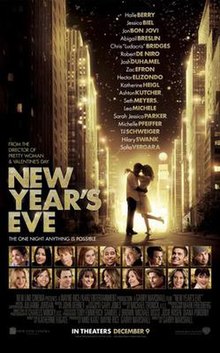We begin the new year seeking inspiration from an oldie-but-goodie 2011 movie, New Year’s Eve. Despite its star-studded cast that included Robert DeNiro, Hillary Swank, Michelle Pfeiffer, Halle Berry, Ashton Krutcher and many others, this movie met with critical disdain (including a pathetic 7% rating at Rotten Tomatoes) and limited success at the box office. A romantic comedy in the Love, Actually and Valentine’s Day mode, it was less successful than those films.
One part of the movie met with success, at least in this quarter. Near the middle of the movie, the machinery that raises and lowers the ball for the iconic Times Square ball drop turns balky. The assembled crowd is worried that their fun will be spoiled.
The character portrayed by Hillary Swank is asked to take the microphone and give the crowd an update. Everyone is expecting reassurance. The Swank character provides more: Inspiration. She goes beyond the immediate crisis to exhort the audience to approach the holiday in the right way. The audience received not just reassurance but vision:
And as you all can see, the ball has stopped half way to its perch. it’s suspended there to remind us before we pop the champagne and celebrate the new year, to stop, and reflect on the year that has gone by, to remember both our triumphs and our missteps, our promises made and broken, the times we opened ourselves up to great adventures… or closed ourselves down for fear of getting hurt, because that’s what new year’s all about , getting another chance, a chance to forgive. to do better, to do more, to give more, to love more, and to stop worrying about what if… and start embracing what will be. so when that ball drops at midnight, and it will drop, let’s remember to be nice to each other, kind to each other, and not just tonight but all year long.
IMDB.com
Let’s resolve that during the coming year, we’ll all try to give our audiences more. Let’s resolve to give students engaging material that will not just inform but inspire.
We will be doing the best we can to support you in this effort by providing useful resources through this Training Tips column.
Like this:
Like Loading...
